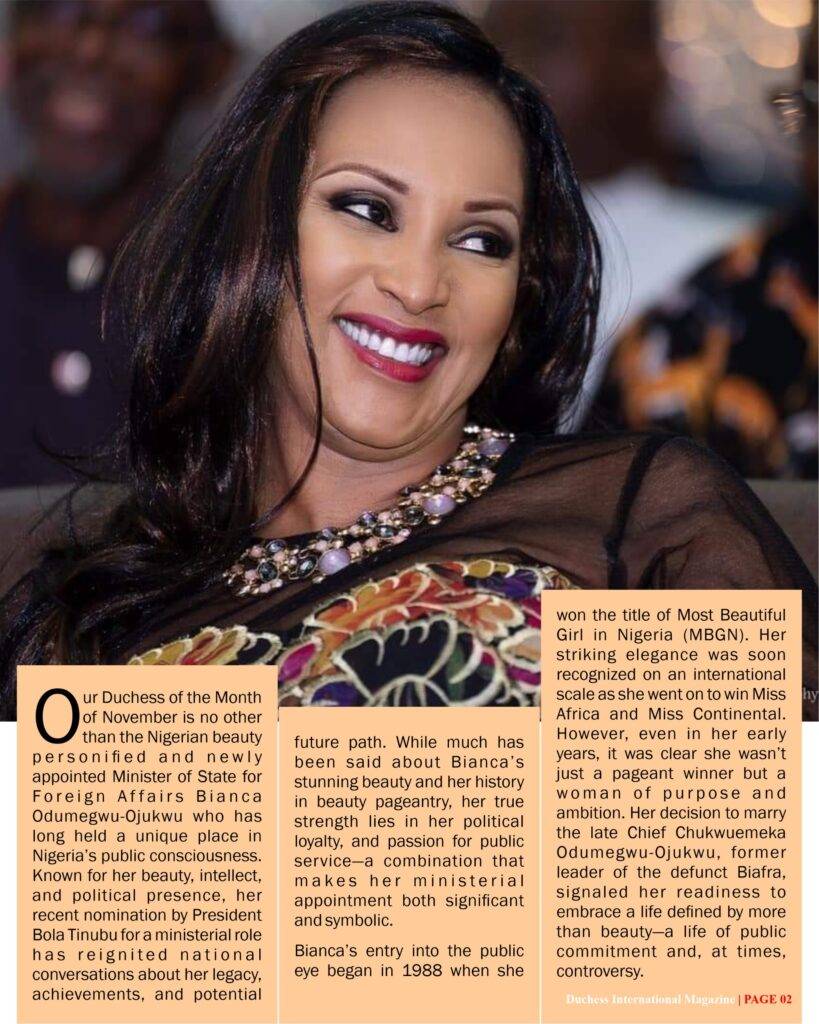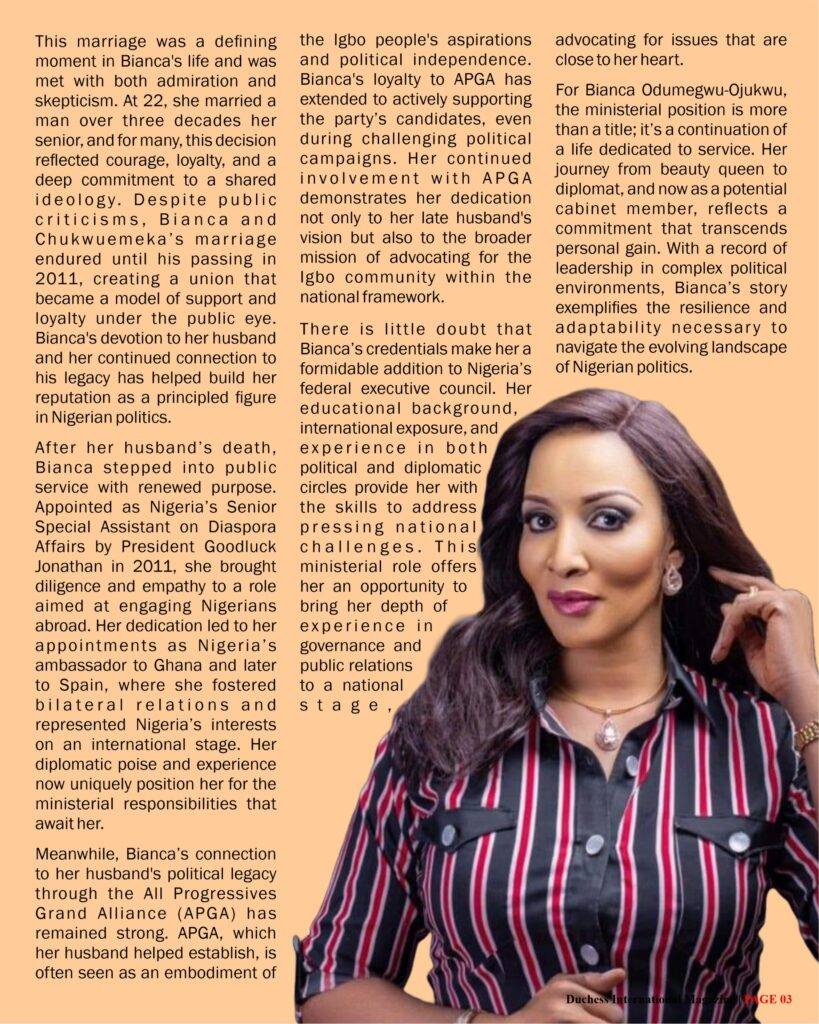Our Duchess of the Month of November is no other than the Nigerian beauty personified and newly appointed Minister of State for Foreign Affairs Bianca Odumegwu-Ojukwu who has long held a unique place in Nigeria’s public consciousness. Known for her beauty, intellect, and political presence, her recent nomination by President Bola Tinubu for a ministerial role has reignited national conversations about her legacy, achievements, and potential future path. While much has been said about Bianca’s stunning beauty and her history in beauty pageantry, her true strength lies in her political loyalty, and passion for public service—a combination that makes her ministerial appointment both significant and symbolic.

Bianca’s entry into the public eye began in 1988 when she won the title of Most Beautiful Girl in Nigeria (MBGN). Her striking elegance was soon recognized on an international scale as she went on to win Miss Africa and Miss Continental. However, even in her early years, it was clear she wasn’t just a pageant winner but a woman of purpose and ambition. Her decision to marry the late Chief Chukwuemeka Odumegwu-Ojukwu, former leader of the defunct Biafra, signaled her readiness to embrace a life defined by more than beauty—a life of public commitment and, at times, controversy.

This marriage was a defining moment in Bianca’s life and was met with both admiration and skepticism. At 22, she married a man over three decades her senior, and for many, this decision reflected courage, loyalty, and a deep commitment to a shared ideology. Despite public criticisms, Bianca and Chukwuemeka’s marriage endured until his passing in 2011, creating a union that became a model of support and loyalty under the public eye. Bianca’s devotion to her husband and her continued connection to his legacy has helped build her reputation as a principled figure in Nigerian politics.
After her husband’s death, Bianca stepped into public service with renewed purpose. Appointed as Nigeria’s Senior Special Assistant on Diaspora Affairs by President Goodluck Jonathan in 2011, she brought diligence and empathy to a role aimed at engaging Nigerians abroad. Her dedication led to her appointments as Nigeria’s ambassador to Ghana and later to Spain, where she fostered bilateral relations and represented Nigeria’s interests on an international stage. Her diplomatic poise and experience now uniquely position her for the ministerial responsibilities that await her.
Meanwhile, Bianca’s connection to her husband’s political legacy through the All Progressives Grand Alliance (APGA) has remained strong. APGA, which her husband helped establish, is often seen as an embodiment of the Igbo people’s aspirations and political independence. Bianca’s loyalty to APGA has extended to actively supporting the party’s candidates, even during challenging political campaigns. Her continued involvement with APGA demonstrates her dedication not only to her late husband’s vision but also to the broader mission of advocating for the Igbo community within the national framework.
There is little doubt that Bianca’s credentials make her a formidable addition to Nigeria’s federal executive council. Her educational background, international exposure, and experience in both political and diplomatic circles provide her with the skills to address pressing national challenges. This ministerial role offers her an opportunity to bring her depth of experience in governance and public relations to a national stage, advocating for issues that are close to her heart.
For Bianca Odumegwu-Ojukwu, the ministerial position is more than a title; it’s a continuation of a life dedicated to service. Her journey from beauty queen to diplomat, and now as a potential cabinet member, reflects a commitment that transcends personal gain. With a record of leadership in complex political environments, Bianca’s story exemplifies the resilience and adaptability necessary to navigate the evolving landscape of Nigerian politics.

In stepping into this new chapter, Bianca Odumegwu-Ojukwu carries with her the weight of her history and the expectations of a new generation looking to her for inspiration. Her next moves will determine not only her legacy but also the future direction of the ideals she has championed. The question of her political alignment remains open, yet what is certain is her influence on the Nigerian political narrative—a legacy defined by loyalty, and a relentless pursuit of public good.



